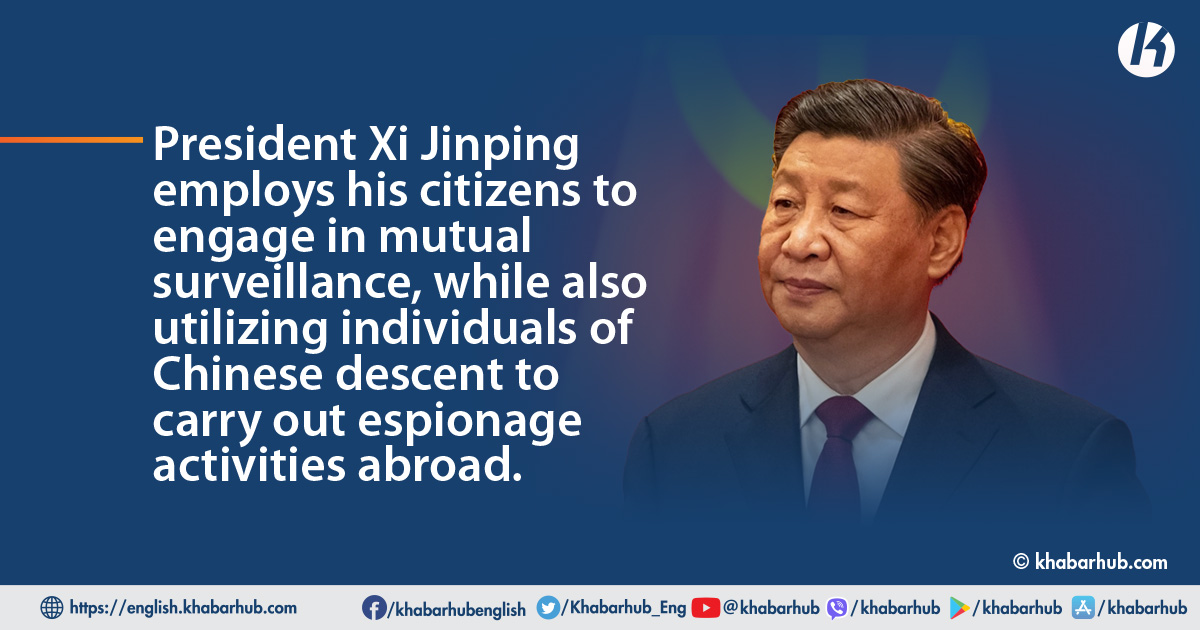There is thoroughness in the Chinese system for anything they do, and this is especially true of espionage, an art the Communist Party of China (CPC) has refined over the decades.
Just last year, President Xi Jinping asked his citizens to spy on each other and ensure that no external power could penetrate China and destabilize the CPC.
Now the Ministry of State Security has issued instructions to its citizens to join counter-espionage work, including the creation of channels for individuals to report suspicious activity as well as commending and rewarding them.
A system that makes it “normal” for the masses to participate in counter-espionage must be established, wrote the Ministry of State Security, the main agency overlooking foreign intelligence and anti-spying, in its first post on its WeChat account, which went live recently.
The law, which bans the transfer of information related to national security and interests which it does not specify, has alarmed the United States, saying foreign companies in China could be punished for regular business activities.
Clearly, the Xi dictum first reported in mid-2022 is being implemented now. The Ministry’s latest call to get the Chinese people involved in anti-spying work follows an expansion of China’s counter-espionage law that took effect in July 2023.
China’s declaration that it is under threat from spies comes as Western nations, most prominently the US, accuse China of espionage and cyberattacks, a charge that Beijing has rejected.
The law, which bans the transfer of information related to national security and interests which it does not specify, has alarmed the United States, saying foreign companies in China could be punished for regular business activities.
The revised law allows authorities carrying out an anti-espionage probe to gain access to data, electronic equipment, and information on personal property.
US State Department spokesperson Matt Miller said, “Certainly encouraging citizens to spy on each other is something that’s of great concern.”
Chinese lawmakers passed a wide-ranging update to Beijing’s antiespionage legislation on Wednesday, banning the transfer of any information related to national security and broadening the definition of spying.
China’s top legislative body had passed (25 April 2023) the revised counter-espionage law’s first update since 2014, after three days of deliberations.
The revised Chinese counter-espionage law provides the basis for China to arrest and detain dozens of Chinese and foreign nationals on suspicion of espionage, including most recently, an executive at Japanese drugmaker Astellas Pharma in March 2023.
Cheng Lei, Australian journalist, accused by China for providing state secrets to another country, has been in detention since September 2020.
China’s declaration that it is under threat from spies comes as Western nations, most prominently the US, accuse China of espionage and cyberattacks, a charge that Beijing has rejected.
The US itself is the “empire of hacking,” a Chinese foreign ministry spokesperson has claimed.
(Source: Various news agencies/outlets)









Comment